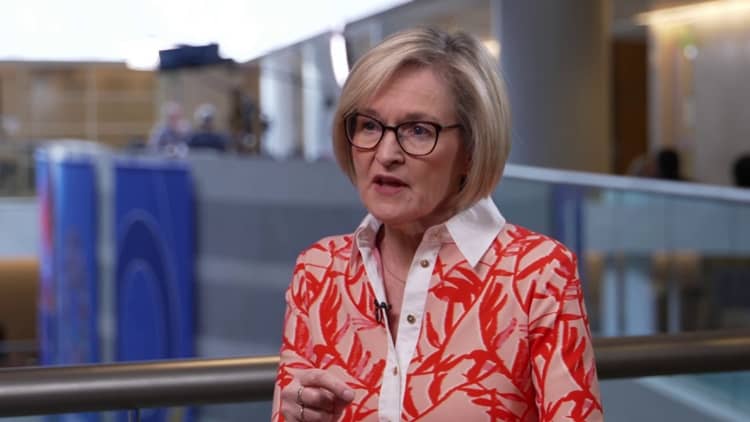The annual Group of 7 summit officially kicks off on Friday in Hiroshima, Japan.
Leaders of the seven major industrial democracies – Canada, France, Germany, Italy, Japan, United Kingdom, and United States – will discuss the future of global relations and the world economy as it faces a number of uncertainties: growing geopolitical tensions, central banks' combat against rising inflation and a U.S. debt ceiling deadlock.
Also under the spotlight are the countries invited for the gathering, including Australia, Brazil, India, Indonesia, South Korea, and Vietnam – nations with pivotal roles to play in regional alliances as the rift between Washington and Beijing deepens.
Leaders will gather in Hiroshima, a Japanese city devastated by the first atomic bomb used as a weapon of war by the U.S. in 1945, which killed hundreds of thousands of civilians during World War II.
Nearly eight decades later, the city will this week welcome world leaders to discuss the path forward for international trade and security as the U.S. and China battle for influence in a multipolar world amid concerns of their decoupling, and as a war continues in Ukraine.
The Group of 7, which was born to discuss policies to deal with economic crises in the 1970s, meets at a crucial time of slowing global growth amid rising inflation.
G-7 finance leaders and central bankers finalized a three-day meeting in Niigata last week. They pledged to combat rising costs and ensure expectations on future price moves remain "well-anchored."
"If you think about what's happening in world politics … we're increasingly worried about the United States-China relationship veering into conflict," Brookings Institute's director for East Asia policy studies Mireya Solis said in a recent podcast.
"These are superpowers on the nuclear issue — and therefore, I think that Hiroshima encapsulates a very poignant reminder of the need to address these issues and avoid a similar outcome," said Solis.
Ukraine-Russia conflict
Also attending the summit will be Ukrainian President Volodymyr Zelenskyy, who is slated to join the meeting virtually.
Additional sanctions against Russia are also expected to be announced in Hiroshima.
"There'll be discussions about the state of play on sanctions and the steps that the G7 will collectively commit to on enforcement," U.S. National Security Advisor Jake Sullivan told reporters on Air Force One.
The steps will focus on "making sure that we are shutting down evasion networks, closing loopholes in the sanctions so that the impact is amplified and magnified in the in the months ahead," he said.
"The U.S. will have a package of sanctions associated with the G-7 statement that will center on this enforcement issue," he told reporters.
The European Union is also in talks about a fresh wave of sanctions to cut Russia off from finance and technologies "to reinvent their war machine," EU commissioner for financial stability Mairead McGuiness told CNBC in April.

Russia's invasion of neighboring Ukraine may also be discussed during the trilateral summit when leaders of the U.S., Japan, and South Korea meet on the sidelines of the G-7 meetings.
South Korean president Yoon Suk-yeol was faced with sharp criticism from the Kremlin after he hinted in a Reuters interview that he may be open to possible military aid to Ukraine.
The three leaders are expected to discuss closer security cooperation, including stronger nuclear deterrence in the wake of escalated provocations from North Korea.
One eye on China
China is also seen to position itself as a peace broker as the ongoing tensions between Ukraine and Russia present a "daunting challenge" for Beijing, analysts told CNBC.
The meeting comes as China this week delivered disappointing data in what was expected to signal a more significant recovery after emerging from its stringent Covid restrictions.
The momentum for China's recovery is seen to be running out of steam, with the likes of Nomura downgrading its full-year growth forecast for the economy from 5.9% to 5.5%.
"As disappointment kicks in, we see a rising risk of slower activity growth, rising unemployment, persistent disinflation, falling market interest rates, and a weaker currency," Nomura's chief China economist Ting Lu wrote.
He cited "weak confidence among consumers and business investors" behind the downgrade.
More tensions
Geopolitical tensions with the U.S. overshadow China's growth outlook as well as instigate fears over global supply chains.
U.S. President Joe Biden is also expected to announce an executive order to curb U.S. firms' investment on China.
Treasury Secretary Janet Yellen told reporters at the G-7 meeting of finance ministers and central bank governors that the U.S. is looking at measures to counter China's use of "economic coercion" against other countries.
Biden confirmed that he will be meeting his Chinese counterpart Xi Jinping in the near future, but fell short of providing a specific timeline as to when the meeting will take place.
"Whether it's soon or not, but we will be meeting," he said in response to a question about his plans to meet with Xi.
A White House official said the potential meeting should be characterized as ideally in-person and that officials are actively evaluating whether it can happen before the end of the year.

